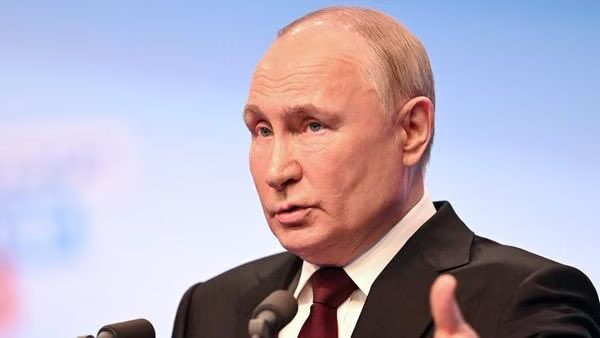 President Vladimir Putin secured a record post-Soviet landslide victory in Russia’s recent election, solidifying his enduring dominance in the country’s political landscape. The triumph, which Putin hailed as a validation of Moscow’s assertive stance against the West, comes amidst mounting international condemnation over Russia’s actions in Ukraine.
President Vladimir Putin secured a record post-Soviet landslide victory in Russia’s recent election, solidifying his enduring dominance in the country’s political landscape. The triumph, which Putin hailed as a validation of Moscow’s assertive stance against the West, comes amidst mounting international condemnation over Russia’s actions in Ukraine.
Putin, a former KGB lieutenant colonel who ascended to power in 1999, emphasized that the resounding electoral win sends a clear message to Western powers, signaling Russia’s steadfastness on the global stage. With a reported 87.8% of the vote, Putin’s victory marks the highest ever result in Russia’s post-Soviet history, according to polling agencies.
The United States, Germany, the United Kingdom, and other nations have criticized the election, citing concerns over political repression and censorship. Despite the outcry, Putin dismissed claims of electoral irregularities and insisted that the outcome reflected the will of the Russian people.
The election was not without controversy, with opposition figures denouncing the imprisonment of political opponents and the stifling of dissent. The death of prominent opposition leader Alexei Navalny, who died in custody last month, cast a shadow over the electoral process, leaving the opposition movement fractured and disheartened.
While Putin’s victory was largely expected given his tight grip on power, the election served as a platform for him to showcase widespread support among the Russian populace. Turnout reportedly exceeded 2018 levels, with queues observed at polling stations across major cities, despite sporadic protests and arrests.
In his victory speech, Putin pledged to prioritize resolving issues related to Russia’s military involvement in Ukraine and reiterated his commitment to strengthening the country’s armed forces. He condemned Western criticism of Russia’s actions in Ukraine, framing the conflict as a defensive response to perceived encroachments on Russian sovereignty.

ByteDance Refuses TikTok Sale Despite US Pressure, Plans Legal Challenge
Harvey Weinstein’s Rape Conviction Overturned, Paving Way For New Trial
Biden Administration Imposes New Sanctions On Iran Following Attack On Israel
Israel’s European Allies Urge Restraint Amid Escalating Tensions With Iran